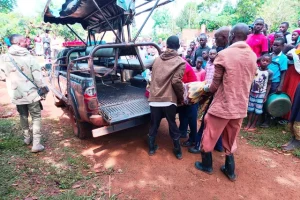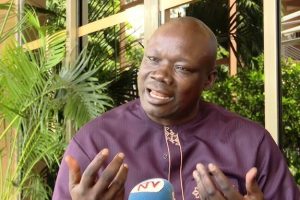A heartbreaking incident has cast a spotlight on the severe hunger crisis affecting university students in Uganda. This week, a student from Kyambogo University was found dead in her dormitory, reportedly due to hunger-related complications. The tragic event has sparked outrage across the country and renewed urgent calls for action to address the alarming food insecurity plaguing Uganda’s higher education institutions.
The young woman’s untimely death comes as reports surge of widespread hunger, malnutrition, and deteriorating health among students, particularly at Makerere University and Kyambogo University. Many students—especially those on government scholarships—struggle to afford even basic meals.

According to social media posts from students and alumni, financial hardship and rising living costs have made it nearly impossible for most students to access adequate nutrition. Some sources suggest that up to 95% of Makerere students are frequently skipping meals due to financial constraints.
This tragic event has intensified attention on what students are now calling “Black November,” a period of extreme hardship as students juggle final exams alongside severe food insecurity.
With mounting academic stress and limited sustenance, many students suffer from worsening health conditions, including chronic fatigue, stomach ulcers, and, in rare cases, even death.
Kamugira Mucunguzi, a former Makerere student, shared a disturbing account of a friend who nearly starved last year. The friend, a student at the College of Engineering, Design, Art, and Technology (CEDAT), survived solely on leftover popcorn until he finally sought help, unable to bear the hunger any longer. Stories like these are becoming alarmingly common, with students often depending on friends or small donations just to get through each month.
### Financial Hardships and Government Inaction
The majority of students facing hunger are those on government scholarships, receiving allowances that barely cover basic living expenses. Many of these students find themselves living on minimal food or skipping meals altogether. This widespread hunger crisis has led critics to question the government’s priorities, especially given the lack of a response to what many now see as a campus-wide humanitarian emergency.
Some believe that the government’s apparent inaction may be politically motivated, as these students are often viewed as more likely to support opposition parties. This sentiment has sparked frustration online, with some suggesting that government support for these students may be stifled by political bias.
### Calls for Urgent Intervention
Following the Kyambogo student’s death, calls for intervention have only grown louder. Activists, NGOs, and concerned citizens are urging both the government and private sector to step in with emergency food relief and support systems for struggling students. Student leaders have taken to social media, tagging influential figures and organizations, including activist and pastor Martin Ssempa, in an attempt to raise awareness and rally support.
Without immediate intervention, advocates warn that more students could face dire consequences as Uganda’s campus hunger crisis worsens. For students facing the “Black November” academic crunch, food insecurity transforms what should be a period of learning and development into a struggle for survival.
![]()




